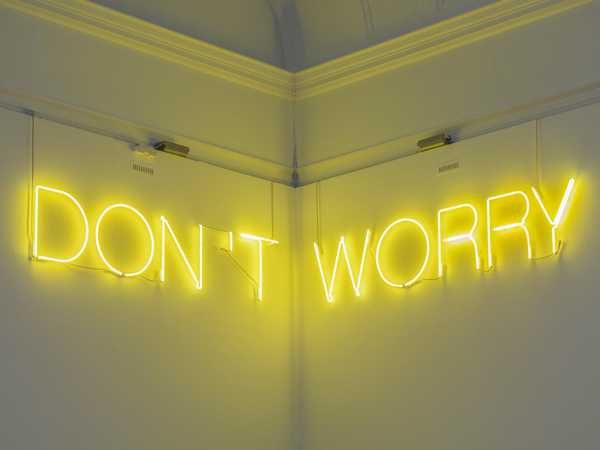One we are not
2004 - Photography (Photography)
Ryan Gander
Ryan Gander is a collector. He keeps all sorts of documents to create from. His studio is full of found images, personal images, documents copied from internet or cutout of newspapers. In a number of his works, lectures or texts, Ryan Gander is very attached to details, to anecdotes. He relays some of the information with great concern for exactitude which can seem futile and absurd but creates the poetic shift. He seeks to highlight invisible details of daily reality. All his works are in dialogue with one another. Each photograph contributes to a cartography of clues. Each title also builds on the associations and complementaries between the works.
Ryan Gander’s practice explores what-ifs, questioning the structural limits and rules of society and being. His work, which ranges from installations, sculptures and photographs, to performative lectures, publications, inventions and intervention, looks at the production of art and culture, to enquire into the processes through which art is perceived and valued. The spirit of his practice centers on development, education, and storytelling, hoping to evoke immediate and honest engagements by the viewer with his narratives. Gander is a collector. His studio is filled with found images, personal images, printed documents and newspaper clippings.
Colors:
Other related works, blended automatically

© » KADIST
Ryan Gander
2012Epiphany…learnt through hardship is composed of a bronze sculpture depicting the model of the little dancer of Degas, in the pose of a female nude photographed by Edward Weston (Nude, 1936) accompanied by a blue cube...

© » KADIST
Keith Tyson
The work of Keith Tyson is concerned with an interest in generative systems, and embraces the complexity and interconnectedness of existence...

© » KADIST
Anthony McCall
1973The film Line Describing a Cone was made in 1973 and it was projected for the first time at Fylkingen (Stockholm) on 30 August of the same year...

© » KADIST
Toby Ziegler
2007Wagon Wheel is a work with a fundamental dynamism that derives both from the rotating movement of the elements suspended on poles and the kicking of the legs of the figure...

© » KADIST
Tacita Dean
2001The photographic quality of the film Baobab is not only the result of a highly sophisticated use of black and white and light, but also of the way in which each tree is characterized as an individual, creating in the end a series of portraits...

© » TATE EXHIBITIONS
Martin Creed
Martin Creed | The Dick Institute Experience the work of one of this country’s most ingenious, audacious and surprising artists at the Dick Institute ARTIST ROOMS Martin Creed presents highlights from the British artist’s thirty-year career...

© » KADIST
Anthony McCall
1974This score is a graphic record of the detailed choreography of one of Anthony McCall’s Landscape for Fire performances...

© » KADIST
Jonathan Monk
2003Untitled (rolled up) , is an abstract portrait of Owen Monk, the artist’s father and features an aluminum ring of 56.6 cm in diameter measuring 1.77 cm in circumference, the size of his father...

© » KADIST
Rosalind Nashashibi
2019Rosalind Nashashibi’s paintings incorporate motifs drawn from her day-to-day environment, often reworked with multiple variations...

© » KADIST
Chris Wiley
2012Architectural details become abstracted renderings in Chris Wiley’s inkjet prints 11 and 20 (both 2012)...

© » KADIST
Chris Wiley
2012Architectural details become abstracted renderings in Chris Wiley’s inkjet prints 11 and 20 (both 2012)...

© » KADIST
Ian Wallace
1986Wallace says of his Heroes in the Street series, “The street is the site, metaphorically as well as in actuality, of all the forces of society and economics imploded upon the individual, who, moving within the dense forest of symbols of the modern city, can achieve the status of the heroic.” The hero in Study for my Heroes in the Street (Stan) is the photoconceptual artist Stan Douglas, who is depicted here (and also included in the Kadist Collection) as an archetypal figure restlessly drifting the streets of the modern world...

© » KADIST
Mark Leckey
2004In Made In Heaven , we are face to face with a sculptural apparition, a divine visitation in the artist’s studio...

© » KADIST
Jeremy Deller
2012Beyond the White Walls , with a commentary written and spoken by Jeremy Deller, is often wryly amusing...

© » KADIST
Simon Starling
2007Invited in 2007 to the Museum Folkwang in Essen (Germany), Simon Starling questioned its history: known for its collections and particularly for its early engagement in favor of modern art (including the acquisition and exhibition of works by Cézanne, Gauguin, Van Gogh, Matisse), then destroyed during the Second World War, the museum was pillaged for its masterpieces of ‘degenerate art’ by the nazis...

© » KADIST
Andrew Grassie
2009In 2008, Grassie was invited by the Whitechapel Gallery to document the transformation of some of its spaces...




